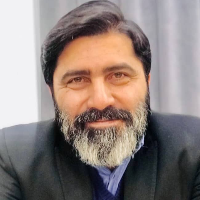A Comparative Study of the Concept of Human Growth in the Constitutions of Iran and Germany
Author(s):
Article Type:
Research/Original Article (دارای رتبه معتبر)
Abstract:
The Islamic Republic of Iran was originally constituted on the principles of monotheism, justice and human dignity. The economic outlook prescribed by her Constitution, accordingly, endorses these principles. Indeed, the constituent power viewed the economic system as a means of providing the material needs of people to achieve loftier goals- defined in the Constitution as human growth. Respect for human dignity is a top priority of the Islamic Republic. Stated in the preamble, several more articles reinforce the growth-oriented economic theory and propose mechanisms the State shall deploy to achieve human excellence and growth other than merely economic development. Much in the same vein, the Constitution of the Federal Republic of Germany, albeit instituting a free-market social order, builds on the religious and philosophical ideologies to depict human as a spiritual-moral being who shall act freely. Bound by moral forces, these actions may help the human grow and develop a moral personality.
Keywords:
Language:
Persian
Published:
Journal of Comparative Study of Islamic and Western Law, Volume:9 Issue: 4, 2023
Pages:
179 to 210
https://magiran.com/p2571680
مقالات دیگری از این نویسنده (گان)
-
Rereading the theoretical basis of equality in the thoughts of the owners of the social contract theory and constitutionalist jurists
Amirmahdi Moshref *,
Journal of Religion and the Contemporary World, -
Legal Requirements for Addressing the Anti-Cultural Effects of Television Advertising in the Iranian Legal System
Seyyed , Mohammadreza Moradian Nayyeri *
Islamic Law Research Journal, -
Inauguration of Political Officials from the perspective of Public Law in Iran
Syed Ahmad Habibnejhad, Hossein Ghasemi *
Journal of Public Law knowledge, -
The Hermeneutic Attitude of the 1979 Constitutional Legislator to the Concept of Fundamental Freedoms
Amirhossein Ebrahimi Tuchayi *,
Public Law Studies Quarterly,



